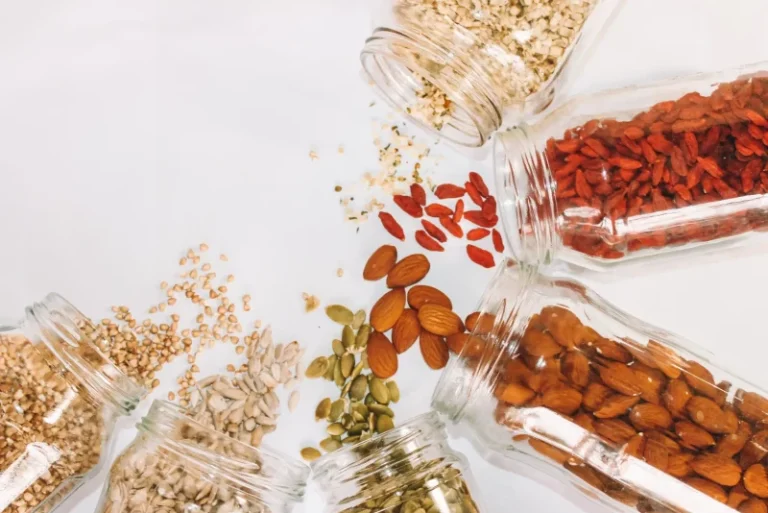There are many foods that help lower blood sugar levels and prevent insulin resistance, including fruits, vegetables, whole grains, beans, legumes, nuts, seeds, and dairy products. But there are also certain foods that may cause insulin resistance.
Insulin resistance is one of the main causes of type 2 diabetes. Insulin resistance occurs when cells become resistant to insulin, causing glucose levels to rise in the bloodstream. This leads to increased hunger, fatigue, thirst, and frequent urination.
In this article, we will look at how these foods affect your health positively and negatively.
Table of Contents
Foods to Include
There are foods that can help reverse or prevent insulin resistance. These include whole grains, legumes, nuts, fish, olive oil, and certain fruits.
Whole Grains
Whole grains contain fiber, vitamins, minerals, antioxidants, and phytochemicals. They provide slow release carbohydrates that help stabilize blood sugar levels. Whole grains also promote satiety and help control appetite.
Legumes
Legumes such as beans, lentils, peas, and soybeans are rich sources of protein, fiber, iron, zinc, magnesium, folate, B vitamins, and vitamin K. Legumes also contain compounds called saponins that help lower cholesterol.
Nuts
Nuts are another excellent source of protein, fiber, unsaturated fats, and minerals. Nuts also contain phytochemicals that protect against oxidative stress and inflammation.
Fish
Fish contains omega 3 fatty acids that help regulate blood lipids and improve insulin sensitivity. Fish is also an excellent source of protein, calcium, phosphorus, potassium, selenium, iodine, and vitamin D.
Olive Oil
Olive oil has been shown to help lower bad cholesterol and increase good cholesterol. It also helps lower triglycerides, which are associated with heart disease. Olive oil is also a source of monounsaturated fats, which may help lower the risk of stroke and heart attack.
Fruits
Fruits are full of nutrients that help maintain a healthy immune system and fight off infections. Fruits also contain fiber, vitamins, and minerals. Some fruits are particularly high in antioxidants, including blueberries, cranberries, strawberries, raspberries, cherries, plums, pomegranates, and oranges.
Food to Avoid
There are several foods that may contribute to insulin resistance. These include refined carbohydrates such as white bread, pasta, rice, potatoes, and sugary drinks.
Refined Carbohydrates
Refined carbs cause an immediate spike in blood sugar levels, followed by a rapid drop. This causes the pancreas to produce more insulin to compensate for the rise in blood sugar. But over time, the pancreas eventually runs out of insulin to produce, causing the blood sugar level to remain elevated.
Sugary Drinks
Sugary beverages can also lead to insulin resistance. The reason is because they contain high amounts of fructose (a type of sugar) which quickly raises your blood sugar level. When you drink too much sugar, it will be stored as fat instead of being used as energy. So if you want to lose weight, avoid sugary drinks.
Processed Foods
Processed foods like chips, cookies, crackers, pastries, and other snacks have been linked to insulin resistance. They’re full of simple sugars and fats which raise your blood sugar level. Eating these types of foods regularly can make it harder for the body to use insulin properly.
Fatty Meats
Eating fatty meats has also been shown to increase insulin resistance. It’s thought that when you eat meat with a lot of saturated fat, your liver releases triglycerides into the bloodstream. Triglycerides are made up of three molecules of glycerol and one molecule of fatty acid. Fatty acids are not absorbed by the small intestine, so they pass through the intestines unabsorbed. As a result, the triglycerides get converted into VLDLs (very low density lipoproteins). These VLDLs then travel around the body and deposit their contents into different parts of the body including the muscles, liver, and adipose tissue. In the case of muscle cells, this means that they become resistant to insulin.
In conclusion, there aren’t any foods that specifically reverse or prevent insulin resistance. However, there are plenty of foods that help keep your blood sugar levels steady throughout the day. This means that you won’t have to worry about going too low or high, which helps you avoid the symptoms associated with insulin resistance.
To help prevent insulin resistance, try eating whole grains, fruits, vegetables, nuts, beans, legumes, lean beef, chicken, fish, yogurt, milk, eggs, and olive oil. Avoid processed foods, fast food, fried foods, red meat, and sweets.

